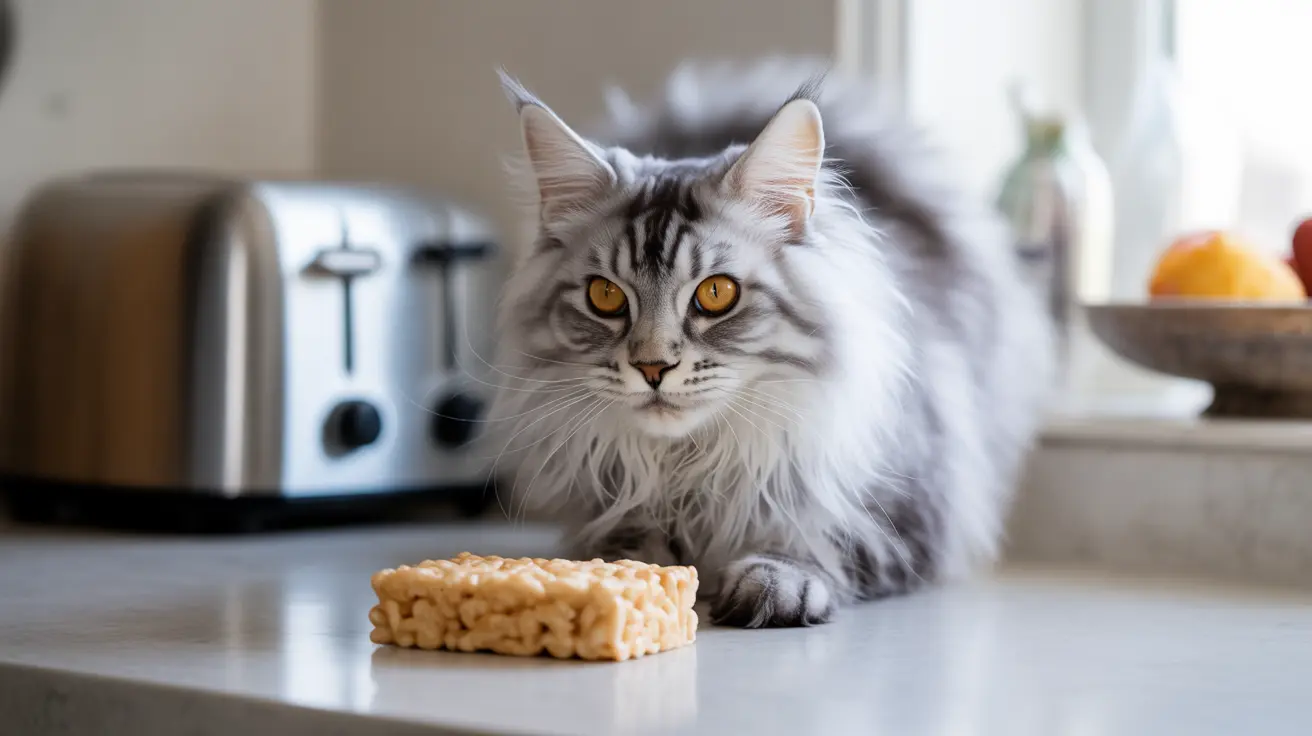Understanding Your Cat's Nutritional Needs
Cats require a diet rich in animal protein and essential nutrients like taurine, which they cannot produce on their own. Their digestive systems are specifically designed to process meat-based proteins, not carbohydrates and sugars found in rice crispy treats.
Unlike humans and even dogs, cats lack the necessary enzymes to properly digest large amounts of carbohydrates. This fundamental biological difference makes rice-based snacks particularly unsuitable for feline consumption.
The Problems with Rice Crispy Treats for Cats
Sugar and Carbohydrate Content
Rice crispy treats contain high levels of refined carbohydrates and added sugars, which can lead to several health issues in cats:
- Weight gain and obesity
- Dental problems
- Increased risk of diabetes
- Digestive upset
Marshmallow and Butter Concerns
The marshmallow component contains artificial sweeteners and gelatin, while the butter presents additional problems due to most cats being lactose intolerant. These ingredients can cause:
- Stomach upset
- Diarrhea
- Vomiting
- Digestive discomfort
Immediate Risks and Long-term Health Impact
While a tiny nibble of a rice crispy treat likely won't cause immediate harm, regular consumption can lead to serious health complications. The high sugar content can contribute to obesity and diabetes, while the lack of nutritional value may lead to dietary imbalances.
Safe Alternatives to Rice Crispy Treats
Instead of sharing rice crispy treats with your cat, consider these healthier alternatives:
- Commercial cat treats formulated for feline nutrition
- Small pieces of cooked, plain meat
- Freeze-dried meat treats
- Cat-specific dental treats
When to Contact Your Veterinarian
If your cat has consumed rice crispy treats, monitor them for these warning signs:
- Persistent vomiting or diarrhea
- Lethargy
- Loss of appetite
- Unusual behavior
Frequently Asked Questions
Can cats safely eat Rice Krispies or rice crispy treats?
While not toxic, Rice Krispies and rice crispy treats are not safe for regular cat consumption. They lack necessary nutrients and contain ingredients that can cause digestive issues and long-term health problems.
What health risks do rice crispy treats pose to cats if eaten regularly?
Regular consumption can lead to obesity, diabetes, dental problems, and nutritional deficiencies. The high sugar and carbohydrate content is particularly problematic for cats' digestive systems.
Is it ever okay to give my cat plain cooked rice as a treat?
While plain, cooked rice isn't toxic, it offers no nutritional benefit to cats. If used, it should only be in very small amounts and not as a regular treat or meal replacement.
Why should cats avoid rice crispy treats containing butter and marshmallows?
Most cats are lactose intolerant, making butter problematic. Marshmallows contain sugar and artificial ingredients that can cause digestive upset and contribute to health issues.
What are the signs I should watch for if my cat accidentally eats rice crispy treats?
Monitor your cat for signs of digestive upset, including vomiting, diarrhea, lethargy, or loss of appetite. If symptoms persist or worsen, contact your veterinarian.
Conclusion
While rice crispy treats might be a beloved human snack, they have no place in your cat's diet. Focus instead on providing species-appropriate treats that support your cat's health and nutritional needs. When in doubt, always consult with your veterinarian about the best treats for your feline friend.






